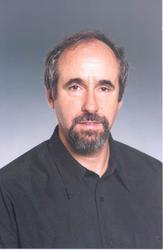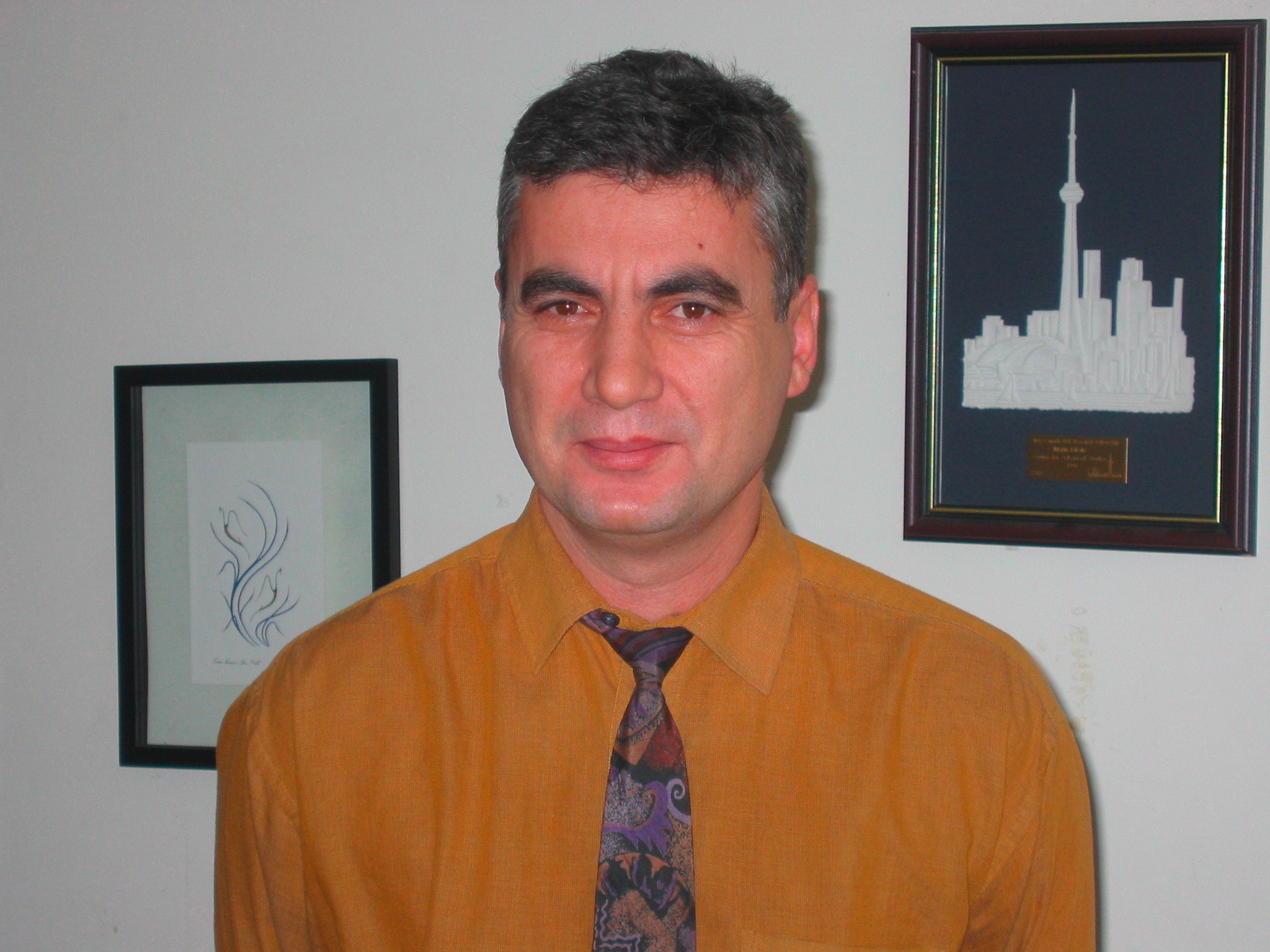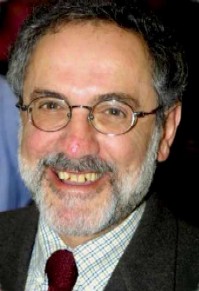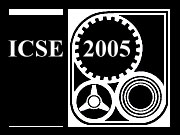 |
|
Saturday, May 21, 2005St. Louis, Missouri, USA |
|
|
Main Contact: |
Important deadlines and dates
| Paper submission deadline |
February 28, 2005
|
| Paper acceptance notification date |
March 21, 2005
|
| Camera-ready paper copy due |
April 8, 2005
|
| One-day workshop |
May 21, 2005
|
Workshop objective
The goal of this workshop is to bring together researchers and practitioners, who investigate concepts, methods, techniques, and tools to design and evolve autonomic software. Autonomic computing aims to reduce the complexity of managing software systems. To be autonomic, a system must configure and reconfigure itself, continually optimize itself, recover from malfunction, or protect itself, while keeping its complexity hidden from the user. Understanding software engineering issues is critical for the proliferation of autonomic applications.
Workshop theme
Understanding software engineering issues for autonomic computing systems is critical for the software and information technology sectors, which are continually challenged to reduce the complexity of their systems. To be autonomic, a system must know itself as well as its boundaries and its environment, configure and reconfigure itself, continually optimize itself, recover or heal from malfunction, protect itself, and function in a heterogeneous world—while keeping its complexity hidden from the user.
While there are several workshops that deal with autonomic computing systems, there are few workshops that focus on software engineering issues, i.e., how do we design, build, and evolve such software systems so that they can meet given—and evolving—requirements for particular classes of users and/or applications. Most existing systems cannot be re-designed and re-developed from scratch to incorporate autonomic capabilities. Rather self-management capabilities have to be added gradually and incrementally—one aspect at a time. With the proliferation of autonomic applications, users will impose ever-more demands with respect to functional and non-functional requirements for autonomicity.
The goal of this workshop is to exchange opinions, advance ideas, and discuss preliminary results among researchers and practitioners who investigate concepts, methodologies, and tools to design and evolve autonomic software. The topic of self-managed systems has been studied in a large number of specific areas, including databases, robotics, control systems, fault-tolerant computing, agents, adaptive systems, neural networks, and others. In this workshop however, we will concentrate on the design and evolution of autonomic application software.
Topics of interest include, but are not limited to, architectural styles, attribute-based architectural styles, and architecture patterns for autonomic elements and systems, designing high-variability software, designing self-managed systems, evolving autonomic software, injecting automicity into legacy systems, integration mechanisms, methods for evaluating complex tradeoffs, adoption of autonomic systems, or assessing the user experience in self-managed systems.
Applications of interest include, but are not limited to, web services, applications involving software that helps people with special needs live their lives, software that integrates multiple heterogeneous components, such as an inter-organizational workflow system that coordinates production or service processes, or autonomic systems serving the information economy.
Workshop attendance, format, and registration
This workshop will be run in a highly interactive style on Saturday, May 21, 2005 from 9:00 am to 5:30 pm at the ICSE 2005 conference venue. DEAS 2005 will include invited talks and short position statements. Participants should come to the workshop prepared to engage in lively discussion sessions. The contributions to the DEAS 2005 workshop will be consolidated into a summary report, which is expected to evolve into a roadmap to assist in documenting best software engineering practices for designing and evolving autonomic software applications.
All workshops participants shall register with ICSE 2005, including workshop organizers, chairs, and any special guests or distinguished speakers.
ICSE 2005 will make available AV projection equipment and the workshop organizers will provide a laptop for projection. Speakers please upload your presentation before your session starts.
Paper submission
We invite (1) position papers and progress reports that describe ongoing work or new ideas, (2) short research papers and experience reports that describe validated research results, and (3) survey papers --- all within the scope of the workshop. Papers should be between 4-7 pages long and must not have been previously published or submitted elsewhere. Here is the call for papers in pdf form.
Please submit papers for DEAS 2005 electronically using CyberChairPROv6 at the DEAS 2005 electronic submission web site. Please follow the ICSE 2005 paper format instructions.
Accepted papers will be published in the ACM Digital library under DEAS 2005 workshop proceedings as part of the ICSE 2005 workshop publications. No formal proceedings will be printed by ICSE, although unofficial proceedings will be made available electronically to workshop participants.
Related conferences and workshops
- WOSS 2004: Workshop on Self-managed Systems, Redondo Beach, CA, USA, Oct 2004.
- CASCON 2004: Workshop on Self-Managed Systems: Research and Practice, Toronto, Canada, Oct 2004.
- CASCON 2004: Workshop on Technologies and Applications of Autonomic Computing, Toronto, Canada, Oct 2004.
- ICAC 2004: IEEE First International Conference on Autonomic Computing, New York, NY, USA, May 2004.
- DAW 2004: Dynamic Aspects Workshop, Lancaster, England, UK, March 2004.
- AMS 2003: Autonomic Computing Workshop, Seattle, WA, USA, Jun 2003.
- WOSS 2002: Workshop on Self-healing Systems, Charleston, NC, USA, Nov 2002.
- Almaden Institute Symposium: Autonomic Computing, Almaden, CA, USA, Apr 2002.
- CHIACS 2002: Human Impact and Application of Autonomic Computing Systems, Yorktown, NY, USA, Apr 2002.
Selected autonomic computing links
- New to autonomic computing
- Richard Murch, Autonomic Computing, Prentice Hall PTR, 2004.
- IBM Research Autonomic Computing
- J.O. Kephart and D.M. Chess, The Vision of Autonomic Computing, IEEE Computer, Vol. 36, No. 1, pp. 41-50, Jan 2003.
- IBM Systems Journal: Special Issue on Autonomic Computing, Vol. 42, No. 1, Jan 2003.
- IBM Autonomic Library
- Autonomic Computing Reading List, Manish Parashar, Rutgers University
Organizing Committee
 |
Dr. David Garlan, Carnegie Mellon University, USA
David Garlan is an Associate Professor of Computer Science in Carnegie Mellon University's School of Computer Science, where he works in the areas of software architecture, formal methods, self-healing systems, and pervasive computing. His research group has developed a number of languages and tools for design of software architectures. He has written numerous articles on software architecture and co-authored the book Software Architecture: Perspectives on an Emerging Discipline, and Documenting Software Architectures: Views and Beyond. |
||||||||||||||||||||||||||
 |
Dr. Marin Litoiu, IBM Canada Ltd., Canada
Dr. Litoiu is member of the Centre for Advanced Studies at the IBM Toronto Laboratory where he initiates and manages joint research projects between IBM and Universities across the globe in the area of Application Development Tools. Prior to joining IBM (1997), he was a faculty member with the Department of Computers and Control Systems at the University Politechnica of Bucharest and held research visiting positions with Polytechnic of Turin, Italy, (1994 and 1995) and Polytechnic University of Catalunia (Spain), and the European Center for Parallelism (1995). Dr. Litoiu’s other research interests include distributed objects; high performance software design; performance modeling, performance evaluation and capacity planning for distributed and real time systems. |
||||||||||||||||||||||||||
 |
Dr. Hausi A. Müller, University of Victoria, Canada
Dr. Hausi Müller is a Professor in the Department of Computer Science and Director of Software Engineering Programs at the University of Victoria, British Columbia, Canada. He is a Visiting Scientist with the Center for Advanced Studies at the IBM Toronto Laboratory and the Carnegie Mellon Software Engineering Institute. He is a principal investigator and Chair of the Technical Steering Committee of CSER, a Canadian Consortium for Software Engineering Research. Together with his research group and in collaboration with IBM he investigates methods, models, architectures, and techniques for autonomic computing applications. He also concentrates on building Adoption-Centric Software Engineering (ACSE) tools and on migrating legacy software to autonomic and network-centric platforms. He was GC for ICSE 2001 & IWPC-2003 and PC Chair for CASCON 2003. |
||||||||||||||||||||||||||
 |
Dr. John Mylopoulos, University of Toronto, Canada
Dr. Mylopoulos is a Professor in the Department of Computer Science at the University of Toronto, Canada. His research interests include information modelling techniques, covering notations, implementation techniques and applications, knowledge based systems, semantic data models, information system design and requirements engineering. Mylopoulos is the recipient of the first Outstanding Services Award given by the Canadian AI Society (CSCSI), a co-recipient of the best-paper award of the 1994 International Conference on Software Engineering, a fellow of the American Association for AI (AAAI) and the elected president of the VLDB Endowment (1998-01, re-elected for the period 2002-05). He is co-editor of the Requirements Engineering Journal, published by Springer-Verlag. He has also contributed to the organization of major international conferences, including program co-chair of the International Joint Conference of AI (1991), general chair of the Entity-Relationship conference (1994), program chair of the International IEEE Symposium of Requirements Engineering (1997), and general chair of the 30th VLDB Conference (2004). He has served on the editorial board of several international journals. He is currently leading a number of research projects and is principal investigator of both a national and a provincial Centre of Excellence. In particular, he leads a project on software reengineering (funded by NSERC, IBM Canada and Bell University Laboratories), a project on Knowledge Management (funded by Bell University Laboratories, PRECARN and Techne Knowledge Systems) , as well as a project on Peer-to-Peer Data Management (funded by CITO, NSERC, and Bell University Laboratories.) |
||||||||||||||||||||||||||
 |
Dr. Dennis B. Smith, Carnegie Mellon Software Engineering Institute, USA
Dr. Dennis B. Smith is the Lead for the SEI Initiative on the Integration of Software Intensive Systems. This initiative focuses on addressing issues of interoperability and integration in large scale systems and systems of systems. Earlier, he was the technical lead in the effort for migrating legacy systems to product lines. In this role he developed the method Options Analysis for Reengineering (OAR) to support reuse decision-making. Dr. Smith has also been the project leader for the CASE environments project. This project examined the underlying issues of CASE integration, process support for environments and the adoption of technology. Dr. Smith has been the lead in a variety of engagements with external clients. He led a widely publicized audit of the FAA's troubled ISSS system. This report produced a set of recommendations for change, resulting in major changes to the development process, and the development of an eventual successful follow-on system. Dr. Smith is a co-author of the book, Principles of CASE Tool Integration, Oxford University Press, 1994. He has published a wide variety of articles and technical reports, and has given talks and keynotes at a number of conferences and workshops. He is also a co-editor of the IEEE recommended practice on CASE Adoption. He has been general chair of two international conferences, IWPC '99 and STEP '99. |
||||||||||||||||||||||||||
 |
Dr. Kenny Wong, University of Alberta, Canada
Ken Wong is an Assistant Professor at the University of Alberta. His main areas of research are software architecture, integration, evolution, and visualization. This research includes conducting case studies, building and using integrated environments for reverse engineering, exploring a framework for continuous, collaborative program understanding, and devising strategies to understand and evolve diverse software systems. He co-manages a Canadian Foundation for Innovation facility to study distributed software development, with connected, experimental laboratories at the University of Calgary and University of Alberta. Dr. Wong was also PC Chair for IWPC 2003 and WSE 2003. |
||||||||||||||||||||||||||
Preliminary DEAS 2005 Program
|
|||||||||||||||||||||||||||
Last updated: H.A. Müller, Thursday, June 9 2005


